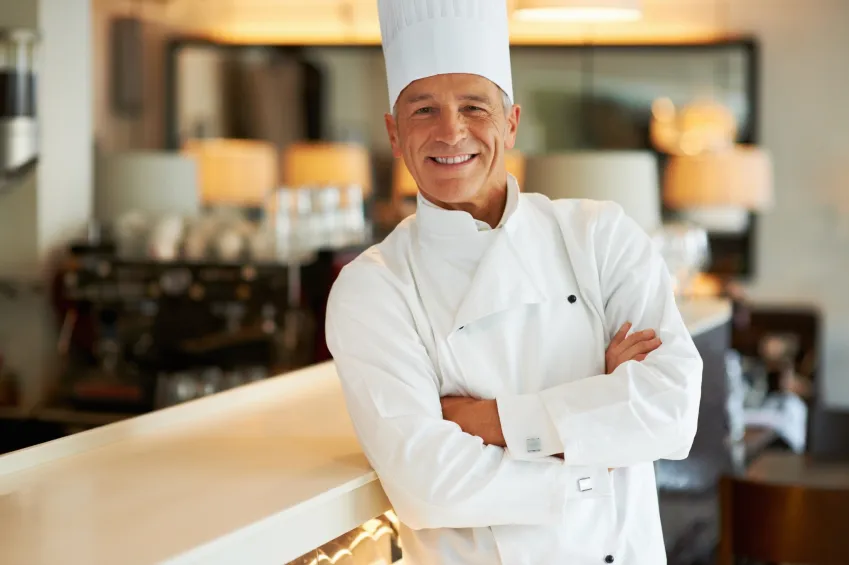
A chef is a highly skilled professional who is proficient in all aspects of food preparation. They are responsible for creating menus, planning and executing meals, supervising kitchen staff, and ensuring that all food is prepared to the highest standards of quality and taste.
Chefs typically have a strong foundation in culinary arts and may have completed a formal culinary education. They also have a deep understanding of food science, nutrition, and flavor profiles. In addition to their technical skills, chefs must also be creative, organized, and have a strong work ethic.
Here are some of the key responsibilities of a chef:
- Creating menus: Chefs are responsible for creating menus that are both creative and profitable. They must consider factors such as seasonality, cost, and customer demand when developing their menus.
- Planning and executing meals: Chefs must plan their meals in advance to ensure that they have the necessary ingredients and equipment on hand. They must also be able to execute their meals quickly and efficiently, especially during busy periods.
- Supervising kitchen staff: Chefs are responsible for supervising a team of kitchen staff. They must train and motivate their staff to ensure that all food is prepared to the highest standards.
- Ensuring food quality and safety: Chefs must ensure that all food is prepared according to health and safety regulations. They must also be able to identify and correct any potential foodborne illnesses.
- Staying up-to-date on culinary trends: Chefs must stay up-to-date on the latest culinary trends and techniques. They must also be able to adapt their menus and cooking styles to meet the changing needs of their customers.
Chefs play a vital role in the food service industry. They are responsible for creating delicious and memorable meals that keep customers coming back for more.
Types of Chefs
There are various types of chefs, each specializing in different aspects of culinary arts. The titles and roles of chefs can vary, and the hierarchy within a kitchen often follows a traditional structure. Here are some common types of chefs:
- Executive Chef:
- The head chef in a restaurant or culinary establishment. They are responsible for overseeing the entire kitchen, planning menus, managing staff, and ensuring the overall quality of the food.
- Sous Chef:
- The second-in-command in the kitchen, working directly under the executive chef. The sous chef assists in managing the kitchen, coordinating activities, and often plays a key role in menu planning.
- Chef de Cuisine:
- Similar to an executive chef, a chef de cuisine is in charge of the kitchen's daily operations. This title is often used in larger restaurants or establishments.
- Pastry Chef:
- Specializes in making desserts, pastries, and baked goods. They have expertise in working with dough, chocolate, sugar, and various other sweet ingredients.
- Saucier (Sauté Chef):
- Responsible for preparing sauces, sautéing food to order, and often working with stews and braises. They play a crucial role in adding flavor and finishing touches to dishes.
- Grill Chef (Grillardin):
- Manages the grill station, responsible for cooking grilled or charbroiled items. This chef is skilled in working with open flames and high-heat cooking.
- Fry Chef (Friturier):
- Specializes in deep-frying, preparing items such as French fries, tempura, and other deep-fried dishes.
- Pantry Chef (Garde Manger):
- Focuses on cold dishes, salads, appetizers, and sometimes charcuterie. They are often responsible for food presentation and maintaining the quality of cold dishes.
- Vegetable Chef (Entremetier):
- Prepares vegetables, soups, starches, and sometimes eggs. They may also be responsible for vegetarian or vegan dishes.
- Fish Chef (Poissonnier):
- Specializes in fish and seafood preparation. They often work with a variety of cooking methods specific to seafood.
- Butcher (Boucher):
- Handles the preparation of meats, including butchering, portioning, and sometimes curing. Butchers ensure the quality and freshness of meat products.
- Commis Chef:
- A junior chef who works under the supervision of more experienced chefs in various kitchen stations. This role is often part of a chef's training and development.
- Expediter (Expo):
- While not a chef in the traditional sense, the expediter coordinates the timing of dishes leaving the kitchen. They communicate with various kitchen stations and ensure that all components of a dish are ready for service.
These titles are often used in classical French culinary traditions, and the structure can vary in other culinary traditions and modern kitchens. Additionally, chefs may further specialize in areas such as nutrition, menu development, or culinary education.
